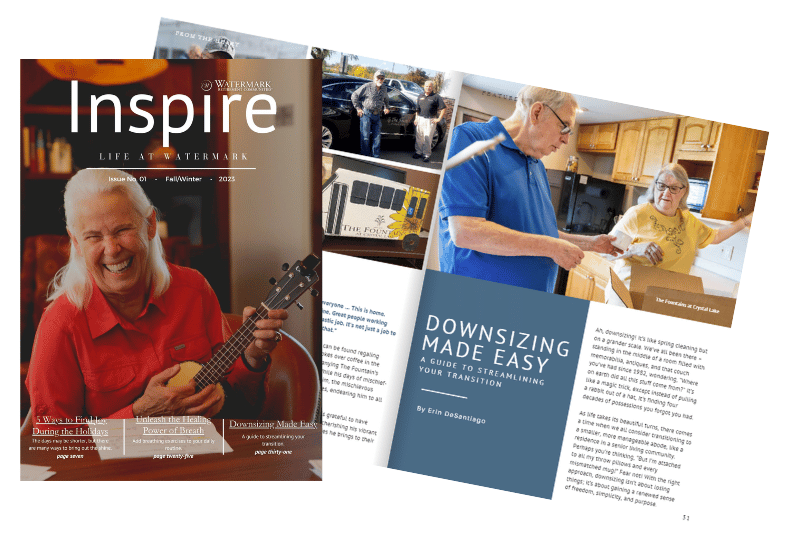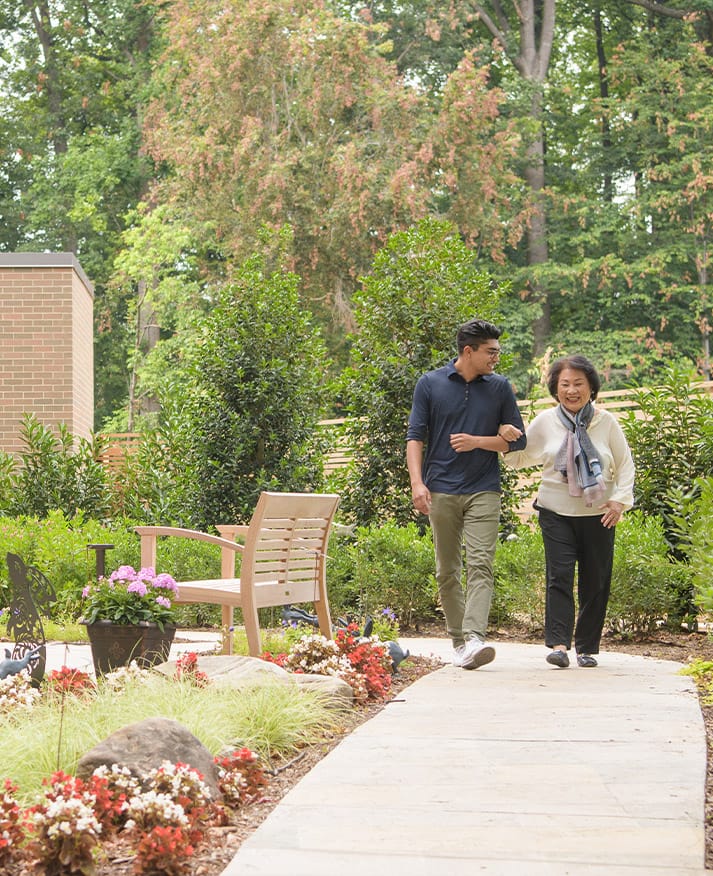Experience redefined luxury in our Independent Living at Sonrisa, complemented by unparalleled comfort and personalized care in our Assisted Living and Memory Care. With a seamless continuum of care all on one campus, embark on a lifestyle of exceptional living. Begin your journey today by calling 279-999-1800 (Independent Living) or 279-213-0047 (Assisted Living/Memory Care).
Your happily-ever-after starts here.
At Sonrisa Senior Living, we embrace the art of living well. Residents thrive in a setting that encourages independence, nurtures individuality, and fosters joy. We extend our commitment to creating an environment that fosters dignity, respect, and joy. Our Independent Living, Assisted Living, and Memory Care communities are more than just beautiful spaces to live — each one is a nurturing haven where every resident feels valued, cared for, and loved.




Let curated convenience be your everyday experience.
Every moment at Sonrisa Senior Living is an opportunity to engage, explore, and enjoy. Discover a new passion, revisit an old hobby, or simply relax in the shared camaraderie of friends. This isn’t just senior living — it’s an extraordinary lifestyle that respects your choices and celebrates your spirit.
Balance your mind, body, and spirit.
Embark on an exciting wellness journey in our new community. Immerse yourself in fitness classes or stimulate your mind through our award-winning Watermark University. Here, every day is an opportunity to find inspiration, ignite new passions, and savor the happiness of a life well-lived.
Cheers to great health and good food.
Discover dining options to suit every resident’s taste and preference. Look forward to enjoying wholesome, chef-prepared meals in a welcoming atmosphere that encourages social connection. At Sonrisa Senior Living, dining is more than a meal — it’s a time to enjoy and connect.
Living Choices

Independent Living
Discover an independent living experience unlike any other. Independence doesn’t mean isolation. Instead, it combines a rich tapestry of experiences, relationships, and opportunities. Here, residents flourish in a community that encourages exploration and engagement, from pursuing personal passions to trying new hobbies. Our extensive calendar of events and classes means there’s always something to look forward to, while our world-class amenities provide countless options for relaxation and enjoyment.

Assisted Living
Our Assisted Living community creates an environment that’s both supportive and inspiring. Enriching activities, gourmet dining experiences, and engaging social connections form the heart of our community. But it’s our commitment to personalized care that truly sets us apart. Our team of compassionate professionals will be there when needed while encouraging residents to live life to the fullest.

Memory Care
Our unique approach to memory care emphasizes personalized care, respect for individuality, and celebrates each resident’s past, present, and future. Our committed associates will create a supportive environment filled with meaningful connections and blissful moments. Welcome to the new Memory Care program at Sonrisa Senior Living, where we celebrate not just living but thriving.

Short-Term Stays
Refresh and rejuvenate with a Short-Term Stay at Sonrisa Senior Living. Our fully furnished apartments offer the perfect haven for seniors, caregivers, and loved ones seeking a change of pace. Enjoy revitalizing connections, engaging activities, and personalized care in our thriving community. Whether you’re here for recovery, relaxation, or curiosity, our Short-Term Stays invite you to experience a new standard in senior living, surrounded by comfort and vitality.

Experience the charm of Roseville.
Roseville offers an enticing blend of suburban tranquility and urban excitement in the heart of the Greater Sacramento region. Filled with lush parks, top-tier shopping, and a thriving arts scene, Roseville is a city that captures the essence of California living. Delight in the convenience of local amenities, explore the natural beauty of your surroundings, or enjoy a leisurely stroll through the historic downtown.

Life at Watermark in Your Hands
At the heart of our operating principle, "Celebrate Often," lies the belief that life is meant to be lived joyfully. Through Inspire, we bring you stories that redefine senior living, embodying the spirit of our vision. Each page is a celebration of remarkable lives, unique experiences, and the boundless inspiration found within our vibrant communities.
In the News

Events

This 86-year-old tech wiz nicknamed ‘Mr. iPhone’ started teaching computer classes for his senior living community and transformed the way people engaged with their families



